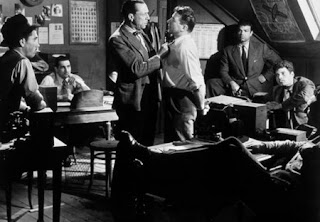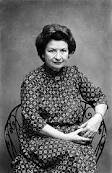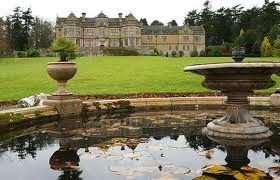More Holmes
 |
| Basil Rathbone as Sherlock Holmes |
There's something about Conan Doyle's prose that leaves me cold. And much as I would love to like them I just can't. However when I saw The House of Silk (great title!), Anthony Horowitz's new addition to the Holmes canon, I couldn't resist giving it a go. I'm a big fan of Horowitz, best known for his TV writing - he brought Midsomer murders to our TV screens, wrote many Poirot episodes, and created and wrote much of the superb Foyle's War. In fact he is allegedly responsible for more deaths on British TV than anyone else! I'd also read a few of his Alex Ryder books, and thoroughly enjoyed his take on a James Bond type character aimed at the Young Adult market.
I've got to say that The House of Silk was a wonderful read. I thoroughly enjoyed it. Whether this would have been the case had I already been an ardent Conan Doyle fan, I don't know. Horowitz is a Conan Doyle fan and I think he had tried to stay as faithful as he could to the canon, while avoiding some controversial areas for modern sensibilities - Holmes may look longingly at his drug-taking implements but he manages to resist. Also, very cleverly, Horowitz sets the writing milieu further into the future than Conan Doyle. Watson is writing in the middle of the Great War while looking back on an earlier period with Holmes. This means that any slight oddities of twentieth-century phraseology are easily explained away by the later writing period, while Horowitz avoids the clumsy "Victoriana" language that some period-set novels are encumbered by.
And the story itself is a clever one. In common with Conan Doyle, Horowitz spins several narrative threads and then brings them smoothly together with style. What starts out as a tale of revenge and theft - solid topics at the heart of many a Victorian / early twentieth century crime novel - morphs into a tale of child abuse and abuse of power in high places. It works astonishingly well. Partly I think because it feeds into many twenty-first century concerns, and partly because it sounds so astoundingly Victorian. Many people are aware from contemporary writing that child abuse was probably as common in Victorian times as it is today, but few writers would deal with it entirely openly. Dickens, for example, is astonishingly open in Oliver Twist, but the true details of what Nancy and Bet are doing for a living are cloaked in such a way that the abuse they suffered is hidden in plain sight so preserving the Victorian rigid moral exterior while underneath lurked the world of The House of Silk.
Most of the characters we know and love are present, with Moriarty making a great guest appearance. I thoroughly enjoyed this novel - great characterisation, the period brought lovingly to life, and clever stylish writing. Welcome to The House of Silk.









Comments